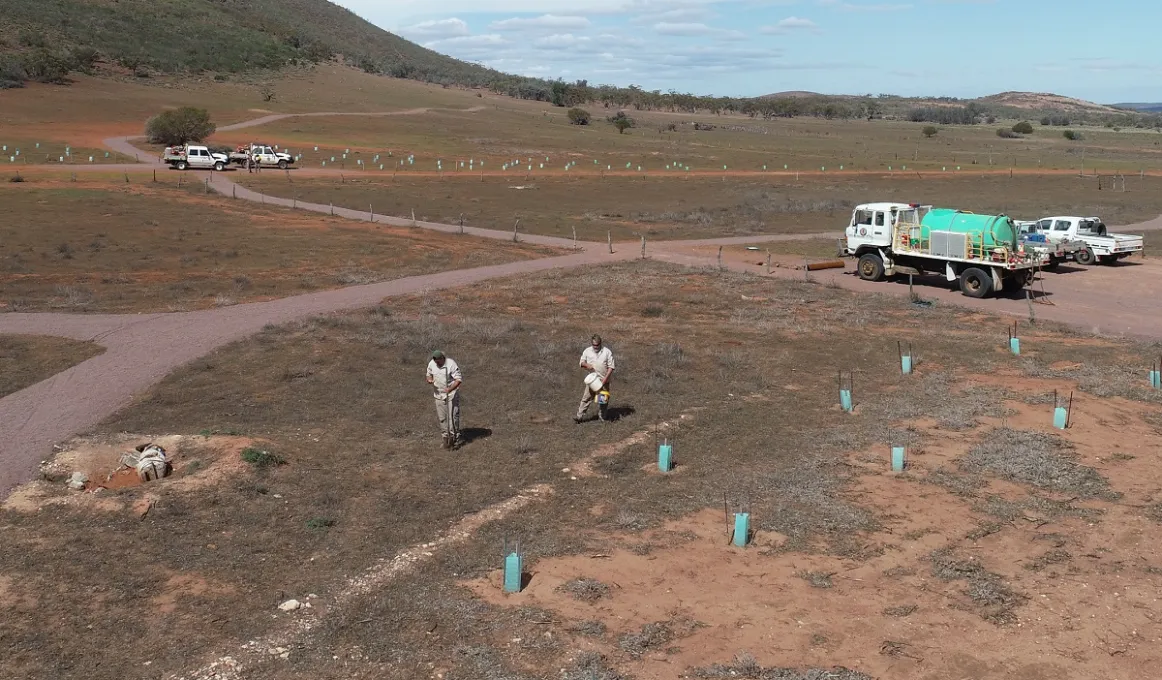World Ranger Day – New Gawler Rangers loving their job

Three new Indigenous rangers working in the Gawler Ranges of SA are increasing in confidence as they learn their many duties.
World Ranger Day (31 July) is an opportunity to celebrate and learn more about the role of an Indigenous ranger.
And 3 new Aboriginal rangers working on Aboriginal traditional lands in the Gawler Ranges on the Eyre Peninsula of South Australia are learning too.
They are employed through funding provided to the Gawler Ranges Aboriginal Corporation from the IAS-funded Indigenous Rangers Program.
New ranger Donald Morrison said he is proud to be involved.
‘I became a ranger because I wanted to work on Country and be in the right environment,’ Don said.
‘I was advised [about the job] by word of mouth and so I enquired. It’s fantastic! I’m very happy with my job.’
The duties of an Indigenous Ranger are many and varied.
The rangers are learning how to supervise and work with volunteers and contractors.
They need to understand public liaison principles and how to work independently.
Duties include the construction and maintenance of visitor facilities and park infrastructure. They are learning about fire management, and how to respond to fire.
Ranger supervisor Lindsay Brown said it will take 3-4 years or more to become proficient and fully independent as Indigenous Rangers.
‘We must continue to expose the rangers to training programs that they require to undertake their role,’ Lindsay said.
‘The supervisor must be patient and continue to mentor each individual and the rangers must be exposed to all aspects of park management.’
New ranger Jaiden Scott Hansen said he didn’t expect the job to involve so much handyman work, such as maintaining shelters.
But he’s not disappointed.
‘It’s great so far. I was inspired at a young age to work with nature. I love being outside with the scenery and everything and thinking about future years to come,’ Jaiden said.
‘It’s a great feeling to learn about history and everything about the land.’
Lindsay said the new rangers are settling into their role, learning new skills and taking up the challenges.
‘I have seen their self-confidence improve over a short time as they become more experienced in the role,’ he said.
‘As they learn new tasks and become proficient this is very noticeable and I can then have confidence in them undertaking the task.’
The Gawler Ranges Aboriginal Corporation employs a project coordinator to provide additional support to the rangers and assist them in their personal development.
Find out more
The NIAA supports Indigenous rangers through the Indigenous Rangers Program to manage their Land and Sea Country, protecting it from invasive species and maintaining its natural and cultural heritage.
World Ranger Day commemorates rangers who have died performing their duties and those rangers who risk their lives conserving the world’s natural heritage.
Read more of our Indigenous ranger stories at World Ranger Day 2020.